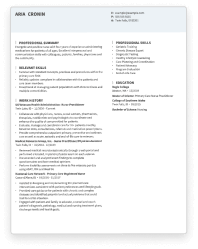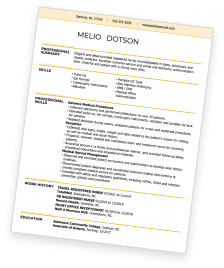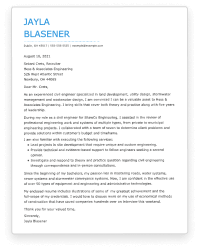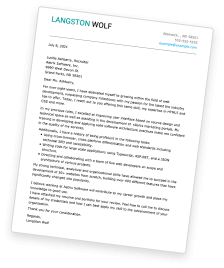Staff Auditor Resumes: Overview
A staff auditor is integral to the financial oversight and compliance of any organization, offering critical analysis and ensuring adherence to laws and regulations.
Typically, staff auditors are responsible for conducting financial and operational audits, preparing audit reports, and suggesting improvements to internal controls and processes. Their work spans various environments, including:
- Public Accounting Firms
- Corporations
- Government Agencies
- Non-Profit Organizations
An outstanding resume for a staff auditor position showcases not only your auditing experience and technical skills but also your ability to communicate findings effectively and work collaboratively within a team.
Our expertly designed examples and downloadable templates are here to guide you through creating a resume that communicates your expertise and passion for the field, positioning you as an ideal candidate for your next staff auditor role.
Staff Auditor Resume: Choose A Format
Selecting the right format and template for your staff auditor resume is a critical first step in the application process.
The format you choose should highlight your strengths, including your work experience, skills, and achievements, in a way that quickly catches the eye of hiring managers and makes you stand out from other applicants.
There are three primary resume formats commonly used by staff auditors: chronological, functional, and combination.
Chronological Resumes for Staff Auditors
The chronological resume format is particularly effective for staff auditors with a robust and relevant work history.
This layout focuses on listing your professional experiences in reverse chronological order, starting with your most recent position.
It’s designed to provide hiring managers with a clear, linear progression of your auditing career, highlighting advancements and key achievements at each stage.
For each job entry, include:
- Job Title and Company Name: Clearly state your position and the name of the organization.
- Employment Dates: Specify the duration of your employment to give a sense of your experience level.
- Responsibilities and Achievements: Use bullet points to describe your key duties and accomplishments in each role. Be specific about your contributions, such as efficiencies improved, audits conducted, or significant findings that led to cost savings or process enhancements.
The chronological format is advantageous because it allows employers to assess your experience and successes within the auditing field quickly.
It’s most suitable for those who have a straightforward career path in auditing or accounting, with steady progression and a series of professional roles that demonstrate increasing responsibility and expertise.
Functional Resumes for Staff Auditors
Instead of focusing on a chronological work history, the functional resume format highlights your skills and accomplishments that are relevant to auditing.
In a functional resume, you organize your professional qualifications into categories that showcase your auditing capabilities.
For each category, provide examples of projects or tasks you’ve completed that demonstrate these skills. While the functional resume downplays the chronological order of your work history, it’s still important to list your employment background, though in less detail, usually at the bottom of the resume.
This format is especially beneficial for recent graduates, individuals looking to transition into the auditing field from another career, or those with significant employment gaps.
However, note that the functional format is not as friendly for applicant tracking systems (ATS), which you must take under consideration when writing your staff auditor resume.
Combination Resumes for Staff Auditors
The combination resume format offers a flexible approach for staff auditors, providing a comprehensive view of your capabilities by first highlighting your relevant skills and accomplishments, followed by a concise chronological work history.
In the skills section, categorize your expertise similarly to the functional format, focusing on areas critical to auditing roles.
Following the skills section, include your work history in reverse chronological order. This part of the resume does not need to be as detailed as in a purely chronological resume but should still convey your career progression and the contexts in which you’ve applied your skills.
The combination resume is particularly suited for professionals with a mix of auditing and non-auditing experience, allowing them to showcase how their diverse skill set is applicable to an auditing role.
Choosing a Resume Format
Deciding on the best resume format is a critical step in crafting a staff auditor resume that effectively showcases your qualifications and catches the attention of hiring managers.
The format you select should align with your career history, strengths, and the specific requirements of the staff auditor position you are applying for.
Remember, the goal of your resume format is to present your professional background in the most positive and relevant light.
After selecting the format that best suits your situation, ensure every section of your resume, from the summary to the skills and work history, supports the narrative that you are the ideal candidate for the staff auditor position.
Tailor your resume to the job description, using keywords and phrases that reflect the employer’s requirements, and always proofread to maintain professionalism and accuracy in your application.
How To Write A Staff Auditor Resume
Once you’ve selected the right format for your staff auditor resume, the creation process becomes much more straightforward.
Your resume should include several key sections, with the option to add others that might be relevant to your professional background and the specific role you’re applying for.
The essential sections to writing a resume include are:
- Contact Information
- Summary or Objective
- Work History
- Skills
- Education
Each section is crucial for showcasing your qualifications and positioning you as the ideal candidate for a staff auditor position.
Contact Information
Your contact information is the first thing hiring managers will see, so it’s important to make it clear and professional.
This section should include your:
- Full Name: Present your name prominently at the top of your resume.
- Phone Number: Ensure this is a number where you can easily be reached.
- Professional Email Address: Use a professional-sounding email, ideally based on your name.
- Location: Listing your city and state is usually sufficient.
- LinkedIn Profile: If you have a LinkedIn profile that is professional and up-to-date, include its URL. Ensure your profile matches the information on your resume.
- Professional Portfolio or Website: If applicable, include links to any professional sites that showcase your work or qualifications further.
It’s important to place your contact information at the top of your resume, formatting it in a way that is easily readable but not so prominent that it detracts from the content below.
Here’s an example of how your contact information might be formatted:
John Smith
Austin, TX | (555) 987-6543 | john.smith@email.com
LinkedIn: linkedin.com/in/johnsmithaudit
Summary or Objective
Every staff auditor resume should start with a concise profile right after the contact information, offering a snapshot of who you are professionally.
This can be in the form of either a summary or an objective, depending on your career stage and experiences.
Resume Summary: Ideal for those with substantial experience in auditing or related fields, a resume summary encapsulates your most pertinent skills, experiences, and career accomplishments. It quickly informs potential employers about what you can bring to their organization.
A compelling summary for a staff auditor might be:
“Detail-oriented Staff Auditor with over five years of experience in conducting comprehensive financial audits, compliance reviews, and operational assessments. Known for delivering insightful recommendations that enhance financial accuracy, operational efficiency, and regulatory compliance. Adept at utilizing the latest auditing software to analyze data, with a proven track record of identifying significant financial discrepancies and risk areas. Committed to supporting organizations in achieving their financial and strategic objectives.”
Resume Objective: More suited for newcomers to the field, career changers, or those with gaps in their professional history, a resume objective focuses on your career goals and motivation for applying for the position. It highlights your dedication and potential contribution to the prospective employer.
An effective objective for an aspiring staff auditor could be:
“Highly motivated and analytical professional aspiring to leverage a background in financial analysis and accounting in a staff auditor role. Eager to apply rigorous audit methodologies and a keen eye for detail to support the financial integrity and compliance of your organization. Committed to professional growth and excellence in auditing, with a strong foundation in accounting principles and a proactive approach to learning and development.”
Note: Whether choosing a summary or an objective, tailor this section to reflect the job description’s keywords and requirements. This customization helps your resume resonate better with both the ATS and the hiring managers, enhancing your chances of securing an interview.
Work History
The “Work History” section is a cornerstone of your staff auditor resume, illustrating your professional journey and showcasing your contributions and achievements in previous roles.
This segment provides potential employers with concrete evidence of your auditing experience and capabilities.
Start with your most recent position and work backward, focusing on roles that are most relevant to the staff auditor position.
This method helps emphasize your suitability and preparedness for the job at hand. For each position, include:
- Job Title and Employer: Clearly state your position and the name of the organization.
- Dates of Employment: Indicate the period you were employed in each role.
- Key Responsibilities and Achievements: Use bullet points to detail your primary duties and highlight your accomplishments. Quantify your results whenever possible to give a clearer picture of your impact, such as efficiencies gained, costs saved, or improvements implemented.
For example, a work history entry for a staff auditor might look like this:
Senior Staff Auditor
XYZ Corporation, New York, NY
June 2018 – Present
- Conducted comprehensive financial audits for various corporate clients, identifying over $1M in potential savings through improved financial practices and compliance.
- Led a team of junior auditors, overseeing audit planning, execution, and reporting, enhancing team productivity by 20%.
- Developed and implemented auditing protocols and procedures in line with the latest industry standards, significantly reducing audit times while maintaining accuracy.
- Collaborated with cross-functional teams to understand business processes, resulting in more effective risk assessments and audit strategies.
- Presented audit findings and recommendations to senior management, contributing to strategic decision-making and operational improvements.
In crafting your work history, aim to demonstrate a progression of responsibilities and skills, as well as your ability to contribute positively to your past employers’ success.
Tailoring this section to highlight experiences and skills relevant to the staff auditor role will make your resume more compelling to potential employers.
Skills
In your staff auditor resume, the skills section plays a critical role in showcasing both your technical abilities and soft skills relevant to the auditing profession.
This part should be a succinct list that complements your work history and educational background, highlighting your qualifications for the staff auditor role.
Although you should tailor your resume to a specific job description, here are some of the most popular hard skills and soft skills to give you a better idea of what is sought after.
Top Hard Skills for Staff Auditor Resumes
- Auditing Standards & Procedures: Knowledge of GAAS, GAAP, and other relevant auditing standards.
- Financial Reporting: Proficiency in reviewing and analyzing financial statements.
- Risk Assessment: Ability to evaluate financial operations and identify areas of risk.
- Regulatory Compliance: Familiarity with laws and regulations affecting the finance and accounting industry.
- Data Analysis Tools: Experience with software such as ACL, IDEA, or other auditing software to analyze data efficiently.
Top Soft Skills for Staff Auditor Resumes
- Attention to Detail: Precision in examining financial documents and identifying discrepancies.
- Critical Thinking: The ability to analyze information objectively and make reasoned judgments.
- Communication: Effective verbal and written communication skills for reporting findings and making recommendations.
- Time Management: Proficiency in managing multiple audits and meeting tight deadlines.
- Teamwork and Collaboration: Working well with audit teams and other departments to achieve audit objectives.
An example of how to format this section on your resume:
Skills
- Comprehensive knowledge of auditing standards and financial regulations.
- Expertise in financial analysis and risk assessment.
- Proficient in data analysis software (ACL, IDEA).
- Strong attention to detail with a methodical approach to problem-solving.
- Excellent communication skills, adept at preparing and presenting audit findings.
Including a mix of technical and soft skills in your resume not only demonstrates your capability to perform the job’s technical aspects but also your ability to integrate into the workplace culture and contribute to team efforts.
Tailor this section to match the skills mentioned in the job description to ensure your resume resonates with the employer’s needs.
Education
The education section of your staff auditor resume is where you list your academic credentials, emphasizing degrees and coursework relevant to accounting and auditing. This part not only validates your formal education but also demonstrates the foundation of your knowledge in the field.
For each degree, include:
- Degree and Major: Specify your degree level (e.g., Bachelor of Science) and your major (e.g., Accounting, Finance).
- University Name and Location: Mention the name of the institution and its location (city and state).
- Relevant Coursework: Optionally, list coursework that is particularly relevant to the staff auditor position, such as Auditing Principles, Financial Accounting, or Corporate Finance.
Here’s an example of what that might look like:
Bachelor of Science in Accounting
University of XYZ, Chicago, IL
Graduated May 2019
Additional Sections
Including additional sections in your staff auditor resume can provide a more holistic view of your qualifications, particularly if you have relevant experiences or achievements that don’t fit neatly into the standard resume sections. Consider adding any of the following:
- Certifications
- Volunteer Experience
- Awards and Honors
- Languages
Top Certifications for Staff Auditors
Certifications can significantly bolster your staff auditor resume by providing formal recognition of your skills and knowledge. Here are some top certifications that are valuable for staff auditors:
- Certified Public Accountant (CPA): Recognized globally, the CPA certification is one of the most prestigious in the field of accounting and auditing.
- Certified Internal Auditor (CIA): The CIA certification is specifically tailored for internal auditors and covers aspects such as risk, control, and information technology.
- Certified Information Systems Auditor (CISA): For auditors focusing on information system auditing, risk management, and governance, CISA is a highly regarded certification.
- Certified Fraud Examiner (CFE): The CFE certification is ideal for auditors specializing in fraud prevention, detection, and deterrence.
- Certified Government Auditing Professional (CGAP): For those specializing in public sector auditing, CGAP demonstrates expertise in governmental auditing.
Including relevant certifications in your resume can set you apart from other candidates by highlighting your specialized knowledge and commitment to professional development in the auditing field.
8 Tips for Writing a Staff Auditor Resume
Tailor Your Resume: Customize your resume for each job application to highlight the experience and skills that are most relevant to the staff auditor position you’re applying for. Use keywords from the job description to improve your resume’s visibility in applicant tracking systems (ATS).
Use Action Verbs: Begin bullet points with action verbs such as “analyzed,” “conducted,” “assessed,” or “implemented” to make your contributions stand out. This approach adds dynamism to your resume and clearly articulates your achievements.
Quantify Your Achievements: Wherever possible, use numbers, percentages, or financial figures to quantify your accomplishments. For example, “Identified financial discrepancies that saved the company $50,000 annually” is more impactful than “Identified financial discrepancies.”
Highlight Relevant Skills: Ensure your skills section is aligned with the needs of the auditing role. Include both hard skills, like proficiency in specific auditing software, and soft skills, like critical thinking and effective communication.
Education and Certifications: Clearly list your educational background, including any relevant courses or projects. Also, prominently feature certifications such as CPA or CIA, as these are often prerequisites for auditing roles.
Professional Formatting: Use a clean, professional format that makes your resume easy to read. Consistent font sizes, bullet points, and headings contribute to a polished look that can make a positive impression on hiring managers.
Include Additional Sections: If you have relevant experience that doesn’t fit into traditional sections, consider adding additional sections for volunteer work, professional associations, or awards. These can provide a more comprehensive view of your qualifications and interests.
Proofread Carefully: Errors in spelling, grammar, or punctuation can detract from your professionalism. Carefully proofread your resume, and consider having a trusted friend or mentor review it as well to catch any mistakes you might have missed.
Helping Job Seekers Like You
View Similar Resumes


Use Hloom's Resume Builder
Key Takeaways
- Customize your resume for each position you apply for, emphasizing the experience and skills most relevant to the job description.
- Highlight both your technical auditing skills and soft skills, demonstrating a well-rounded professional profile.
- Use numbers and metrics to make your achievements stand out, providing concrete evidence of your impact in previous roles.
- Include any relevant certifications (such as CPA, CIA, or CISA) to show your commitment to the field and specialized expertise.
- Use a clean, professional layout that makes your resume easy to read and visually appealing.
More Resume Examples
Use Hloom's Cover Letter Resume













